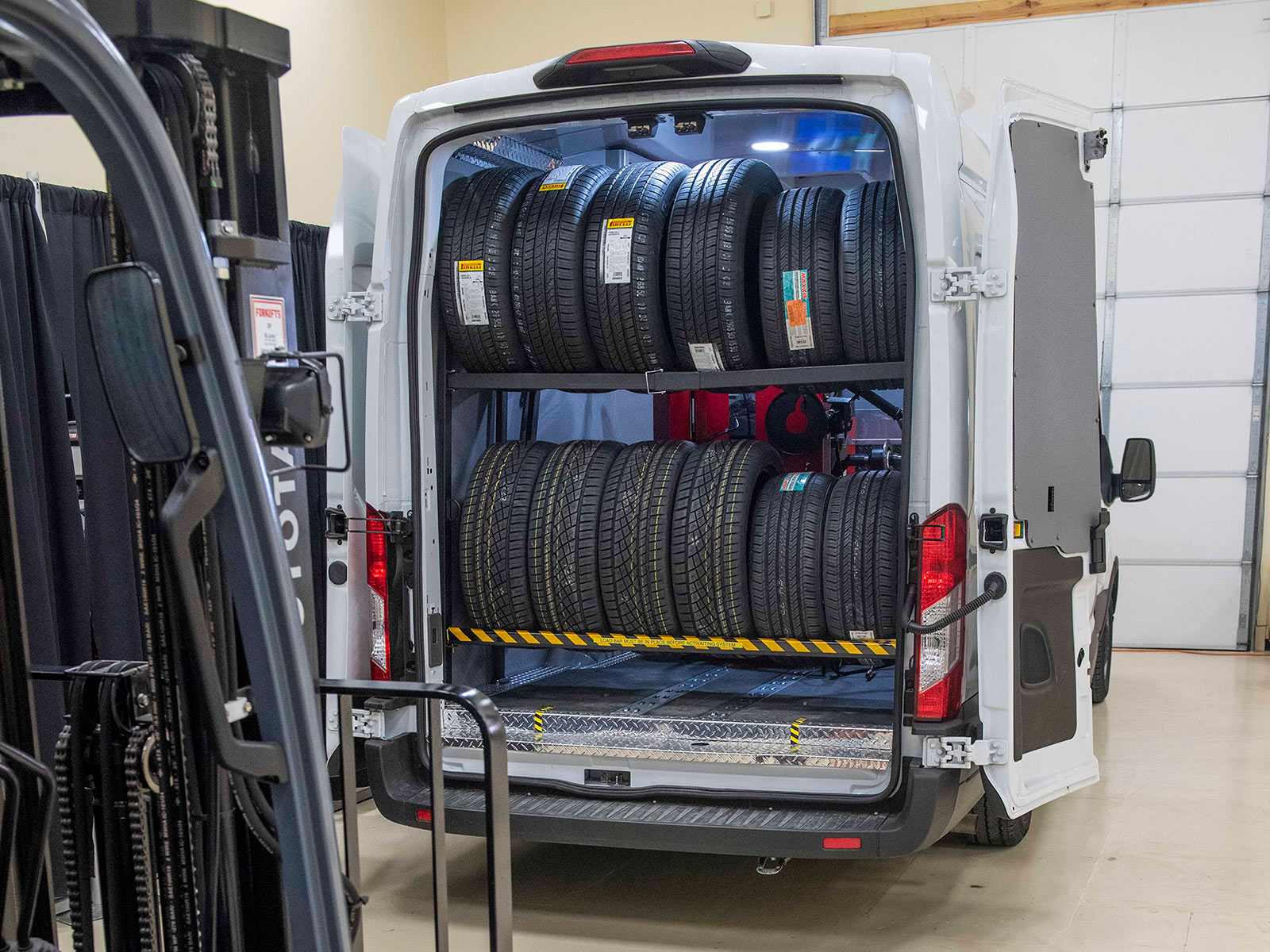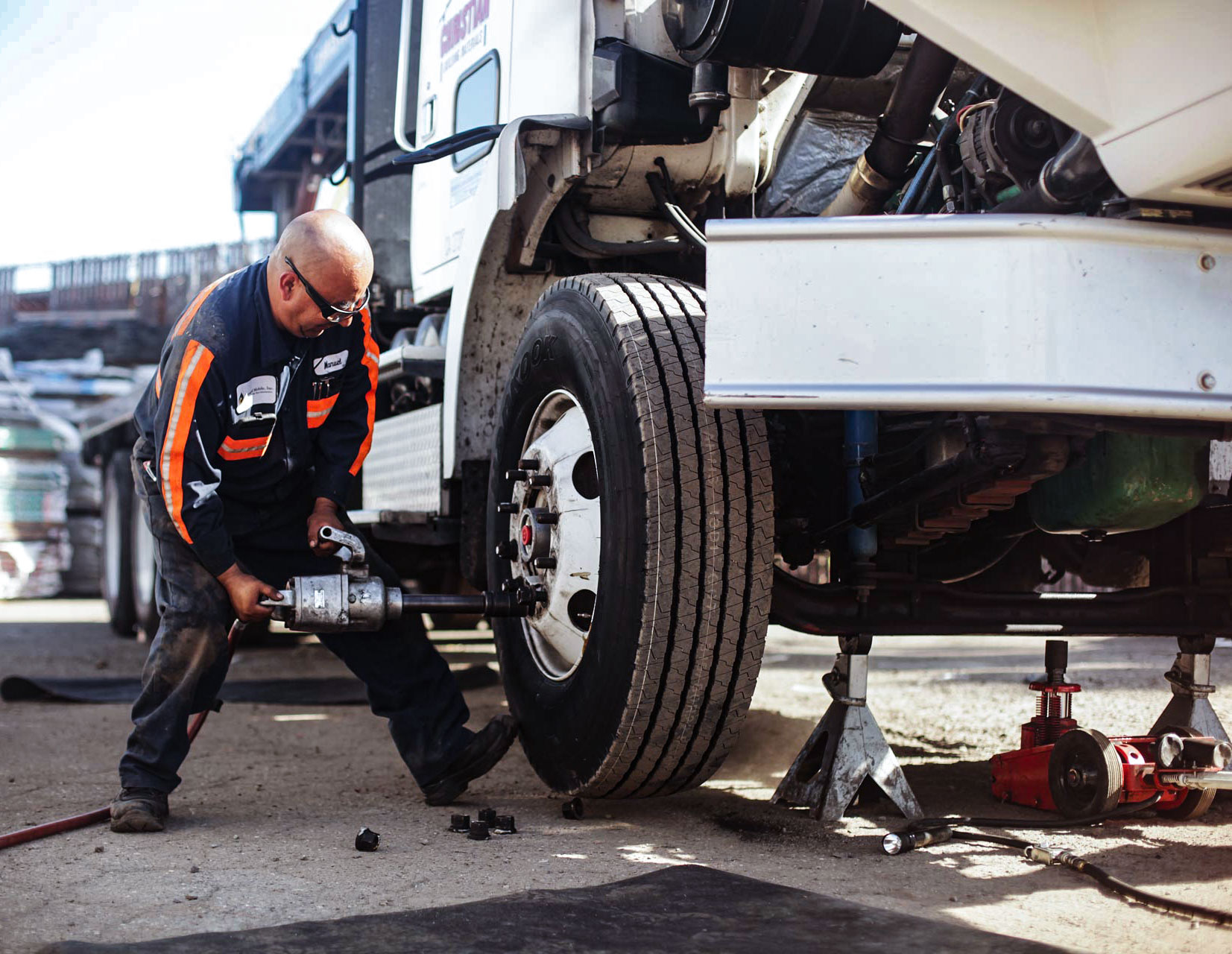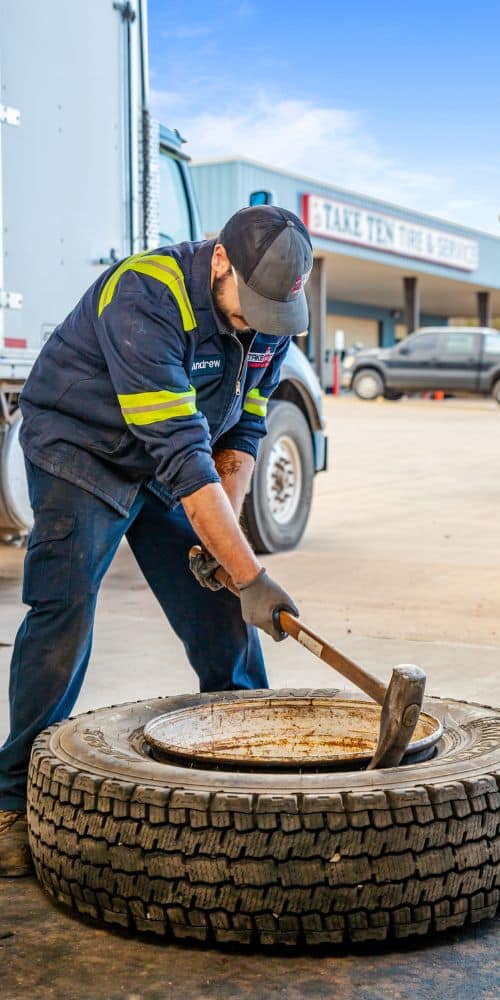Raise Your Experience: Trust Morris Tires for GMC Tires Service
Raise Your Experience: Trust Morris Tires for GMC Tires Service
Blog Article
Tire Service: The Impact of Weather
When it comes to guaranteeing ideal efficiency and security on the roadway, recognizing the effect of weather condition problems on tire solution is important. GMC Tire Service. In this conversation, we will certainly check out the complex partnership in between climate problems and tire service, losing light on the significance of weather-specific tire maintenance practices and factors to consider.
Warmth and Tire Efficiency
When subjected to heats, tires experience changes in efficiency that can considerably impact vehicle safety and security and handling. The warm created from prolonged driving or heat problems triggers the tire rubber to soften, causing decreased walk life and enhanced wear. As the rubber becomes softer, the tire's grip when driving lessens, influencing braking distances and general grip. In severe instances, too much warm can also create tire blowouts, positioning a severe safety danger to the lorry and its owners.

Winter Impacts
Cold weather problems can have a significant effect on tire efficiency and safety and security. As temperature levels drop, tire rubber can set, resulting in lowered traction on icy or snow-covered roads. In cool weather, tires might likewise lose atmospheric pressure extra rapidly, which can influence managing and gas performance. In addition, cool temperatures can create tire sidewalls to tense, enhancing the threat of damages from pits or other road dangers.
To reduce the effects of winter on tires, it is important to on a regular basis examine tire pressure and inflate them to the maker's suggested levels. Using winter or all-season tires designed for cold weather conditions can likewise enhance grip and grasp on icy or snowy roads. Correct tire maintenance, including regular examinations for wear and damage, ends up being much more critical throughout colder months to ensure optimum performance and security.
Rainy Issues Impact
Throughout stormy problems, tire performance and security can be substantially affected by the damp roadway surfaces and reduced visibility. The step pattern of tires plays a crucial function in preserving traction on wet roadways. Tires with worn-out treads are a lot more vulnerable to hydroplaning, where a layer of water accumulates between the road and the tire surface area, causing loss of grip. To combat this, motorists must on a regular basis evaluate their tires for adequate walk depth and consider purchasing tires specifically made for wet problems.
Furthermore, stormy weather can also lower presence, making it challenging for vehicle drivers to see the roadway ahead plainly (GMC Tire Service). In such problems, it is important to adjust driving speeds appropriately and preserve a safe complying with range to permit for abrupt quits. Effectively filled with air tires can likewise assist in maintaining control on damp roadways by giving much better handling and grasp
Snow and Tire Security
Snow-covered roads position unique obstacles for drivers, highlighting the importance of appropriate tire selection and maintenance. When driving in snowy problems, having the best tires can make a considerable distinction in safety and efficiency. Winter tires are created with unique rubber compounds and tread patterns to offer better grip on snow and ice contrasted to all-season tires. The deeper footsteps and sipes of winter season tires aid hold the road better, decreasing the threat of sliding and slipping.

It is essential to comply with maker guidelines when mounting and utilizing tire chains to avoid damage to the tires and vehicle. By selecting the best tires, maintaining proper inflation, and thinking about added traction aids like tire chains, drivers can boost their safety and security when navigating snow-covered roadways.
Weather-Related Tire Maintenance
When confronted with different climate problems, appropriate tire maintenance ends up being an important element of automobile safety and efficiency. Weather-related tire upkeep encompasses a variety of techniques intended at making certain ideal tire function and durability in various weather condition scenarios. One essential facet of weather-related tire upkeep is tire stress regulation. Changing temperature levels can create tire pressure to differ, influencing traction and fuel efficiency. Routinely checking and adjusting tire stress according to manufacturer suggestions is necessary for safe driving in altering climate condition. Furthermore, tire tread depth plays a considerable role in handling different climate components. Tires with adequate step depth offer far better grip on wet or icy roads, reducing the risk of hydroplaning or skidding. When tread wear gets to a specific depth is important for keeping grip and security in negative weather, examining tire walk consistently and changing tires. By focusing on weather-related tire maintenance, vehicle drivers can enhance safety and security, improve vehicle performance, and prolong the lifespan of their tires.
Conclusion
In conclusion, weather condition problems have a substantial effect on tire efficiency and security. From heat affecting tire stress and put on to chilly weather condition lowering traction, it is crucial to think about the climate when keeping and making use of tires.
In this conversation, we will explore the intricate connection in between weather conditions and tire service, shedding light on the importance of weather-specific tire upkeep practices and considerations.

Report this page